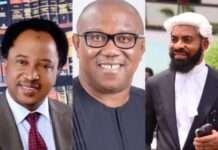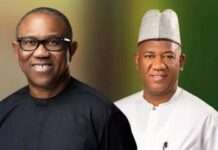Tinubu’s Independence Day Speech: Key Highlights, Promises, and Nigerians’ Reactions
Nigeria marked her 65th Independence Anniversary on October 1, 2025, with President Bola Ahmed Tinubu delivering a national broadcast that touched on issues of unity, economic reforms, and national security. The President urged Nigerians to remain patient as his administration implements reforms he claims will eventually bring long-term prosperity.
While the message was filled with optimism, many Nigerians received it with mixed feelings. From the rising cost of living to the persistent security challenges, citizens questioned whether the speech would translate into real change or remain another yearly ritual of promises.
Tinubu’s Key Points in the Speech
In his address, President Tinubu outlined several priority areas his administration intends to focus on:
- Economic Reforms:
He defended the controversial removal of fuel subsidy, arguing that it was a necessary step to free resources for infrastructure, education, and healthcare. He acknowledged the hardship it has brought but assured citizens that relief measures were underway. - Infrastructure and Power:
Tinubu promised significant investments in the power sector, road networks, and digital economy, insisting that Nigeria’s long-term growth depends on sustainable infrastructure. - Security:
The President reaffirmed his administration’s commitment to defeating insurgency and tackling kidnapping, banditry, and other violent crimes. He mentioned that new security equipment and strategies were being deployed nationwide. - Unity and Patriotism:
He called on Nigerians to put aside ethnic, religious, and political differences to build a stronger nation together. According to him, “Nigeria is bigger than our divisions, and our future depends on what unites us, not what divides us
Nigerians React To Tinubu’s Independence Day Speech.
Across social media platforms, the reactions were sharply divided.
While upporters applauded his courage to speak about painful reforms, saying the fuel subsidy removal was long overdue, critics on the other hand argue that the President sounded disconnected from the suffering of ordinary Nigerians. One user on X (formerly Twitter) wrote: “Every October 1, they tell us to endure. But endurance does not pay bills.”
On the streets of Lagos, Abuja, and Kano, citizens interviewed by reporters also expressed doubts. A trader in Mile 12 said, “This is not the first time we are hearing promises. Buhari made promises, Jonathan made promises. What we need is food on the table, not speeches.”
Historical Context
Independence Day speeches have always been a stage for Nigerian leaders to inspire hope. From Tafawa Balewa’s call for unity in 1960 to Obasanjo’s push for democracy in 1999, and Buhari’s emphasis on anti-corruption, each leader has used the day to set an agenda.
Yet, critics argue that most speeches fail to reflect in policy outcomes. For instance, past leaders promised uninterrupted power supply, but over 60% of Nigerians still lack access to reliable electricity in 2025.
Expert Analysis
Economists believe that Tinubu’s reforms will be a double-edged sword. Dr. Ibrahim Sule, an Abuja-based analyst, said: “The subsidy removal is good economics, but bad politics. Without immediate safety nets, people will continue to resent these policies.”
Security experts also argue that while the President is committed to tackling insurgency, more collaboration with local communities is needed.
The Bigger Question: Hope or More Promises?
Nigeria’s Independence Day should be a moment of reflection and direction. However, the mixed reactions to Tinubu’s speech show a widening gap between government rhetoric and citizens’ expectations.
Until citizens see tangible progress in job creation, power supply, and security, Independence Day speeches will continue to sound like recycled rhetoric.
Conclusion
At 65, Nigeria stands at a crossroads. President Tinubu’s speech called for patience and unity, but Nigerians are demanding urgent action. Whether his promises will translate into measurable results will determine how his administration is remembered in the years ahead.










